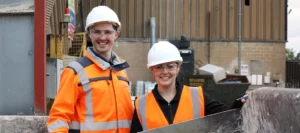Healthcare could be key to solving the climate crisis
Accessible healthcare could be key to solving the climate crisis, according to a new study published by researchers at Stanford University.
The current paradigm for conserving tropical forests is to establish protected conservation areas and although somewhat successful, these measures fail to address the needs of the local community who have few economic alternatives other than to illegally log and covert the land.
In 2007, two non-profit organisations took a different approach to conservation and established a healthcare clinic near the Gunung Palung National Park in Indonesia
The clinic was able to serve thousands of patients by accepting a range of alternative payments, such as tree seedlings, handicrafts and labour – an approach that was created in collaboration with the local communities.
Through agreements with district leaders, the clinic also provided discounts to villages that could show evidence of reductions in illegal logging.
Researchers at Stanford University worked with the two non-profits to analyse the health records and satellite observations of forest cover over a ten year period.
During this period, the researchers found that there was a significant decline in the range of infectious diseases and at the same time, satellite images showed a 70% reduction in deforestation.
Based on the success of this project, the researchers have highlighted that taking a holistic approach and looking at the whole community can have greater long-term effects.
Isabel Jones, the lead author of the study said: ‘We didn’t know what to expect when we started evaluating the program’s health and conservation impacts but were continually amazed that the data suggested such a strong link between improvements in health care access and tropical forest conservation.’
Monica Nirmala, the executive director of the clinic from 2014 to 2018 added: ‘This data supports two important conclusions: human health is integral to the conservation of nature and vice versa – we need to listen to the guidance of rainforest communities who know best how to live in balance with their forests.’
Photo Credit – Pixabay















